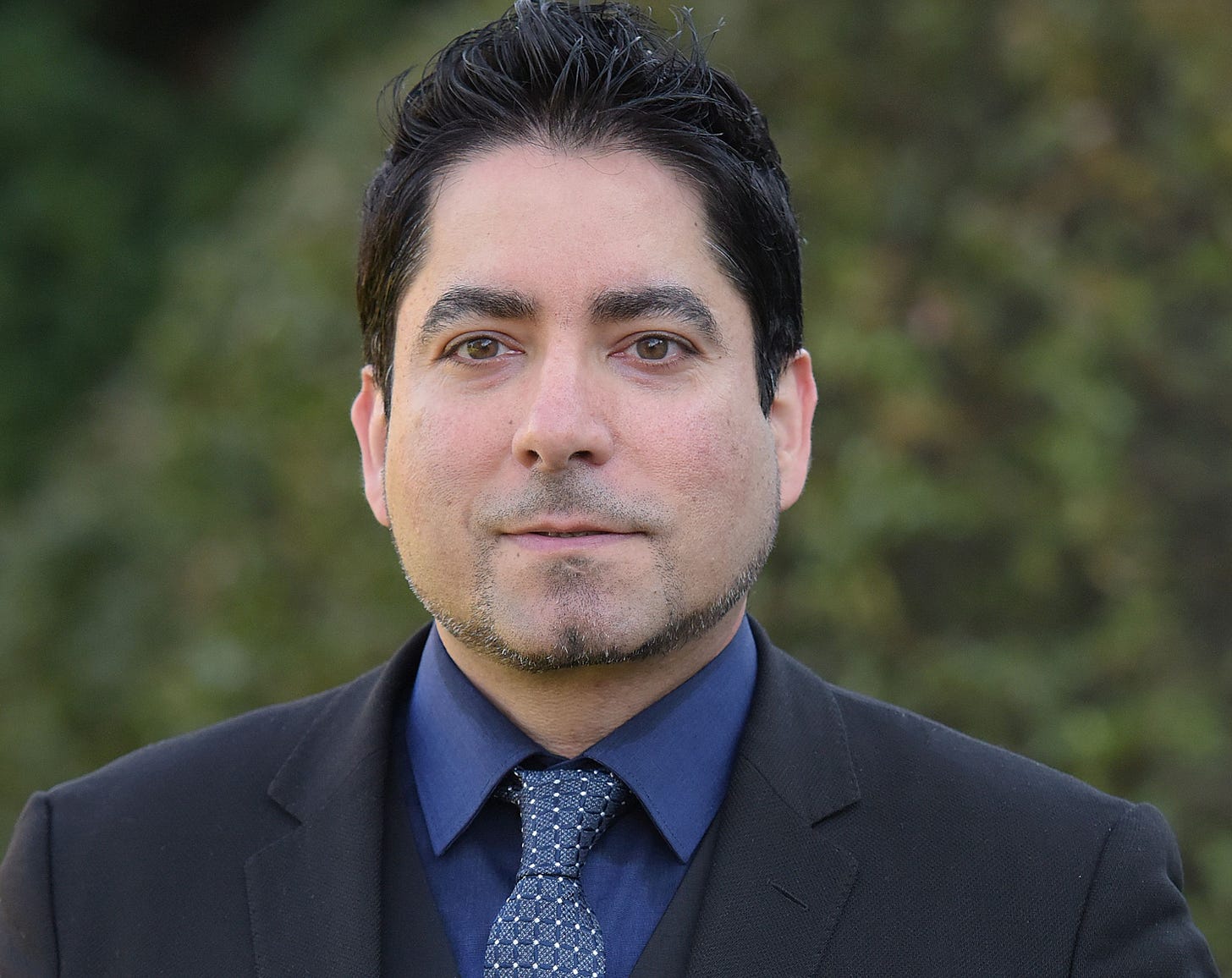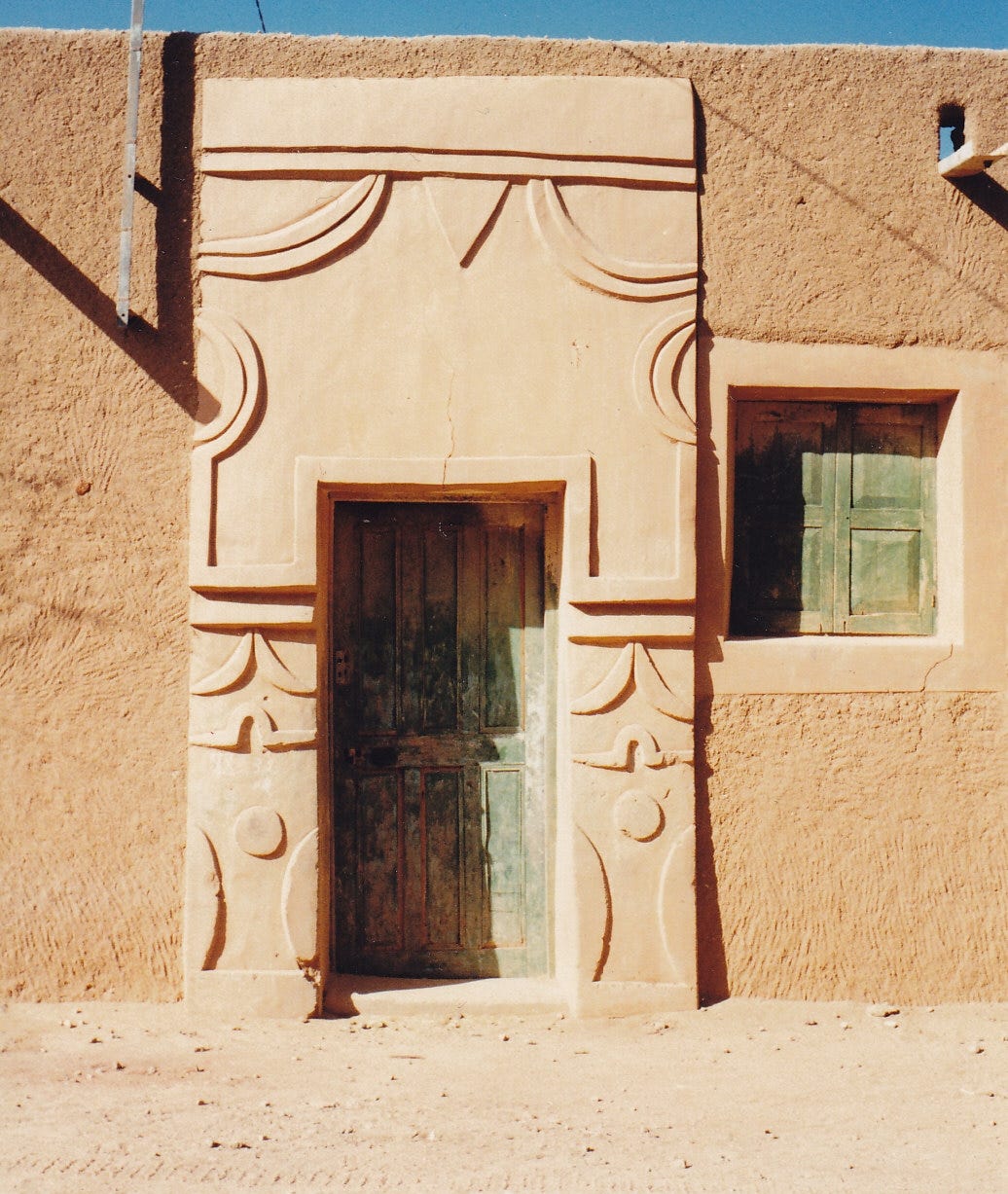Muslim slave trade in pre-colonial Africa
August 23: International Day for the Remembrance of the Slave Trade and its Abolition
Even before Europe's colonial rulers divided up Africa, Africans hunted Africans and sold their captives to Muslim slave traders who exported them to the Arabian Peninsula or Persia or further. Historians speak of 1400 years, compared to 400 years of transatlantic slave trade. While the Europeans ruthlessly exploited their colonies, they also abolished human trafficking within Africa.
"The Arab part of the population here lives from the slave trade. All the soldiers and the other Sultan's officials are accomplices and receive their share of the plunder."
This is how Baron von Eberstein described his experiences in present-day Tanzania on August 16, 1888. In the port city of Lindi, he manages the station of the German East African Society. In the interior of the country, black Africans are hunted by other Africans and sold to Arab slave traders who ship them on across the Red Sea and the Indian Ocean. The baron is shocked. After all, slavery has been prohibited under international law since the so-called Berlin Congo Act of 1885. However, human trafficking continued in Africa wherever the colonial powers had no military or political influence. This even continued into the 20th century.
The phenomenon of slavery
“Slavery means that people can be placed in extreme bondage - and that this is a socially accepted relationship.”
This is how Egon Flaig, Professor of Ancient History at the University of Rostock in Germany until his retirement, defines slavery: as a socially and socially recognized institution. "The difference with forced prostitution, for example, is how the authorities react. The prostitute who escapes and goes to the police station is not returned to her tormentor. Instead, the tormentor is hunted down. If she were his slave, the police would put her in chains and return her to her owner."
In his book "Weltgeschichte der Sklaverei” (World History of Slavery), Egon Flaig describes Islamic slavery as the most comprehensive, far eclipsing both slavery in antiquity and that in the later USA. “Ever since there has been documented humanity, we have found slavery - however, this slavery was highly regional. What distinguishes Muslim slavery is that Islam succeeds in creating a world system.” This is due to its optimal geographical location - on the border with Africa, Central Asia and South Asia, and with influence on Europe.
Islam emerged on the Arabian Peninsula in the early 7th century, in a society in which slavery was omnipresent. For five centuries, Arab slave traders have been exporting black slaves from colonial cities on the East African coast. They shipped them across the Indian Ocean to northern Arabia, Persia and Iraq, where the world's first plantation economy was established.
Slavery and the Quran
Neither in the Quran nor in the hadiths, the traditional sayings of the Prophet Mohammed, is anything fundamental about slavery, Tilman Nagel points out. He was Professor of Islamic Studies and Arabic Studies in Göttingen, Germany, until his retirement. “The fact that people are the property of other people is a matter of course for the society of early Islam and later. In this respect, the Quran does refer to slavery, but to something that does not need to be justified or reformed. It is simply there.”
There are no measures in the Quran on how to obtain slaves, but there is also no prohibition of slavery, says Mouhanad Khorchide. He teaches as a professor of Islamic religious education at the University of Münster in Germany. However, the Quran does regulate how a slave can attain the status of a free man. For example: “When you sin. If i.e. you promise in the name of God to do something and do not do it. Then it says in the fifth surah, verse 89, that you should buy a slave as a penance.”
The conditions and circumstances of slavery and enslavement are first systematized in Islamic law, the Sharia, explains Tilman Nagel: “A legal system of slavery is then formed that really clarifies the individual provisions. What is a slave who is obliged to obey his master allowed to do on his own initiative? Can the master assign him certain tasks? Is an enslaved person allowed to marry? etc.”
So what exactly does Sharia law say about slavery? Mouhanad Khorchide summarizes it like this: “In classical Islamic law, we find that the majority of schools permitted slavery. Wahabi scholars in Saudi Arabia permitted slavery until well into the 20th century. And they justified this by saying that prisoners of war were taken into slavery in Prophet Muhammad's time.”
In fact, wars were the main sources of enslavement. When rival Muslim tribes or peoples fought each other, Muslim prisoners of war were enslaved. However, most wars were waged against non-Muslims, according to the ancient historian Egon Flaig. “The Muslims followed the religious duty of jihad, the war to subjugate all non-Muslim peoples.” They conquered a huge area from Spain and Senegal to India with unprecedented speed between 635 and 720, from Lake Chad to the Caucasus and the Hindu Kush. “In the process, they established the largest and longest-lasting slavery system in world history.”
What were the theological reasons? “Islamic law has clearly formulated that a Muslim may take a non-Muslim as a slave,” Islamic scholar Mouhanad Khorchide explains. “But conversely, a non-Muslim may not take a Muslim as a slave. The Muslims then have a duty to free this slave.” And Tilman Nagel adds: the idea that man was born free does not exist in Islam. “Human freedom is not anchored in the existence of man himself, but Allah grants it to Muslims because they recognize to be his servants. The others, who do not recognize Allah as such, can be pushed down into slave status as a punishment.” Nagel calls this a kind of “metaphysical justification for slavery.”
History of Muslim slavery
The supply of slaves came from the southern edge of Christian Europe, from the Caucasus, from India and - above all - from Africa. The part of the continent south of the Sahel, i.e. Black Africa, became the largest supplier of slaves in the world. “Most southern Saharan societies had long been slave societies - but Islamic colonization changed everything,” the ancient historian Egon Flaig says. “Sultanates and emirates administered according to Islamic principles emerged along the Sahel belt. These states hunted their non-Muslim neighbors without interruption.”
The intra-African slave trade played a major economic role even back then, as John Azumah from Ghana emphasizes. The theologian was born a Muslim and converted to Christianity at the age of 17. “Slavery was a very important part of economic expansion in West Africa. There also was a form of colonization in the sense that dominant Islamic tribes conquered weaker tribes and imposed Islamic rule over them. Many Muslims don't admit that.” Many tribes also had to deliver slaves to the Muslim conquerors as protection money, writes Senegalese anthropologist Tidiane N'Diaye:
Islamization turned the African kings into accomplices. Those who submitted to Islam were able to escape enslavement. For most, this was the reason for collaboration.
By the beginning of the 10th century, all the inhabitants of the Sahara had converted to Islam. A new form of mass transportation emerged with the caravan. It enabled the trans-Saharan export of slaves. For weeks, the captured people had to march through the desert, driven by Arab slave traders. Many succumbed to the exertions of the walk, hunger and thirst along the way. Scientists estimate the death rate at 20 to 30 percent.
Europeans played a marginal role in this brutal business. This is because there are three players to be distinguished in the enslavement process: the slave hunter, the slave trader and the slave owner. Egon Flaig reports that the Europeans in Africa shipped slaves, but did not enslave them (with the exception of Portuguese invaders). “The enslavement processes in Africa were intra-African wars, waged throughout the Sahel, in a radius of 4,000 miles. The majority of the captives were exported to the Islamic core area, the smaller part went to the coasts where they were sold to Africans and sold on to Europeans.“
Muslim versus Western slavery
Theologian John Azumah has investigated the widespread notion that Muslims treated slaves better than European or American slave traders and owners and found that this is not necessarily the case. “One of the key differences was that the slaves who were taken to the West were able to marry and reproduce, and have their families.” This is why you can find large populations of African Americans today in North America and in the Caribbean. “In the Islamic world, you will find very few black descendants, even though the slave trade was massive. One of the reasons is that many of the male black slaves were castrated at eunuchs.”
According to Tidiane N'Diaye from Senegal, only one in five survived the cruel procedure. In his book “Le génocide voilé” (The Veiled Genocide) the anthropologist, a Muslim himself, harshly criticizes the Islamic slave trade. “The Arabs and the North Africans were racists, they despised black people. That is why they did not want them to have children in their countries.”
So does racism lead to slavery? Or is it the other way around?
Scholars argued about this question for a long time. According to Egon Flaig, internationally recognized slavery researchers now agree that it is slavery that leads to racism. He explains it as follows: enslaved persons are considered property, they are usually kept away from qualified professions. This means that they hold positions and carry out activities that don't require much qualification. “It is perfectly logical that such people are perceived as not being equal - and not just legally not equal: rather, they are perceived as inherently inferior. Nothing else is at the heart of racism. And that is exactly what slavery produces.”
Arab skin color racism
However, Egon Flaig also believes that Africa is a special case. On the one hand, more and more Africans became Muslims in the course of Islamic colonization. On the other hand, the demand for slaves never ceased. Finally, even black Muslims were deliberately hunted down and enslaved, although Islamic law actually forbade this.
Ancient historian Egon Flaig is not the only one to see the reason for this in the racism of Arabs towards dark-skinned people. In 1614, a black legal scholar in Mali wrote a “fatwa” against this perceived racism. In other words: he wrote his Islamic legal opinion. Ahmad Baba had witnessed how light-skinned Moroccans from Islamic North Africa destroyed and enslaved the Muslim metropolis of Timbuktu. In his fatwa, he placed orthodox Islamic teachings above such Arab racism.
The reason for slavery is unbelief. (...) Whoever is captured as an unbeliever may be taken into possession according to the law. But by no means the one who converted to Islam of his own free will from the beginning, regardless of which nation he belongs to. (...) These are free Muslims whom it is not permissible to enslave in any way. us.
Whether Muslim or non-Muslim, enslaved people were dehumanized, legally degraded to a thing and robbed of their identity. Even military slaves did not dare to revolt. The consequences were dramatic: the importation of slaves gave the Islamic heartland economic and military supremacy. Meanwhile, the hunted areas bled out more and more, emphasizes Egon Flaig.
Abolition
“It is important to know that abolition was exclusively a European project. There has never been an abolitionist ideology outside of European culture. If you trace the ideology back to its origins, you will find the first evidence of it in late antique Christianity, among religious minorities. And it remained religious minorities who constantly denounced slavery, even throughout the Middle Ages.”
In 1794, France banned slavery throughout its territories, but was unable to enforce the ban due to the Revolutionary Wars. In 1807, Great Britain banned the trade in slaves throughout the Empire. The British set up a European naval blockade to intercept slave ships. If the supply was cut off, the system would collapse, so they thought, Egon Flaig says. But that was a mistake. The enslavement wars on land continued. “In order to eradicate slavery, it was necessary to stop enslavement itself. That simply meant intervening in Africa itself”.
But the Islamic elites felt it was an imposition that they should no longer have slaves, and they fought back fiercely. One striking example is the so-called Arab Revolt in what later became German East Africa. It lasted from 1888 to 1889. Claudia Lederer, legal and Islamic scholar, explains: Sultan Bargash was notorious as someone who hated non-Muslims like the plague. Not only the Germans, but all Europeans were to be expelled so that the slave trade could continue undisturbed. “The revenues made up at least three quarters of the Sultan's state budget. In other words, without the slave trade, the economic basis of the Sultanate would have collapsed.”
Claudia Lederer has researched the history of the Arab Revolt for her doctoral thesis. To this end, she analyzed primary sources in various languages, including thousands of files from the German Imperial Colonial Office. According to these documents, the Sultan of Zanzibar began to spread rumors that the Germans wanted to take over and free all the slaves, and incited the locals to resist. “They feared that conquerors were coming and wanted to forcibly Christianize them. Hordes of fighters arrived, some of them mercenaries, but also Arab slave hunters and slave traders from outside. They were all brought together to get rid of the Europeans, the Christians, the foreigners.”
African slave traders and Western academia
In the Islamic and African world, this chapter of their shared history is still widely taboo today. In 2020, the Nigerian journalist and writer Adaobi Tricia Nwaubani revealed on the BBC that her great-grandfather had been a slave trader. “The buying and selling of human beings among the Igbo had been going on long before the Europeans arrived. "The successful sale of adults was considered an exploit for which a man was hailed by praise singers, akin to exploits in wrestling, war, or in hunting animals like the lion.”
Although Nwaubani Adaobi Tricia condemns the practice of slavery, she asks for leniency for her ancestor. It would be unfair, she writes, to judge a 19th century man by 21st century principles. The idea that “all men are created equal” was completely alien to traditional religion and the law in his society. The response from the Arab broadcaster Al Jazeera was swift, condemning the article as yet another attempt by the BBC to play down the UK’s role in slavery.
Muslim anthropologist Tidiane N'Diaye, on the other hand, agrees with the Nigerian writer and takes her thought even one step further: the same yardstick taking into account the time period should be applied to the former European colonialists. In his opinion, however, the major obstacle to this is the solidarity between Muslim Africans and Arabs because of their common religion, Islam. Instead of practicing self-criticism, they prefer to focus on blaming Europeans and Americans. The same attitude is also prevalent among Western researchers. A dangerously one-sided view which plays into the hands of Islamists, the Ghanaian John Azumah postulates:
Since the 1990s, Western academics were shying away, almost self-censoring, from these difficult topics. Unfortunately, many of the ideological radical Muslim groups draw on the romanticized narratives about Islam that has been contributed to by Western scholarship.
Today, millions of Africans pray in mosques, even though their ancestors were enslaved in the name of Islam. Others are demanding financial compensation from the former colonial powers. Young activists in Europe are demanding that museums return African artifacts to the former colonies.
Restitution
According to Karl-Heinz Kohl, who taught ethnology at Goethe University in Frankfurt/Main, Germany, until his retirement, the current social conditions in post-colonial Africa must be taken into account in this debate. “The major problem in many African countries to this day is nation building, i. e. the development of a common national consciousness - across the ethnic boundaries that still characterize the societies there. Exhibiting objects from individual groups would create an imbalance and bring some unrest to these societies.”
Tanzania, the former German East Africa, even rejected restitution in 2019. Karl-Heinz Kohl believes that African demands for restitution must of course be met. However, the ethnologist rejects one-sided demands from German activists. “What bothers me about the current discussion is that the activists take on a paternalistic role by saying: we speak for Africa. The African people, the African politicians, the kings of the different ethnic groups can articulate themselves.”
Colonialism and Anti-colonialism
Egon Flaig sees a similar distorted perception in relation to colonial history and slavery. Slavery would have been the normal state of affairs in almost all advanced civilizations and also in so-called primitive cultures. Therefore, Flaig argues, its abolition meant the greatest cultural break in human history - and colonialism was the price. “The greatest injustice has been committed by those who have transferred people from a state of freedom to a state of radical bondage. In other words, the enslavers should pay the most compensation.”
If you follow Flaig's logic, it is their African successor states who would have to make reparations. Instead, in Egon Flaig's opinion, the violent struggle of their ancestors in defense of slavery is all too often ignored in the current debate on colonialism. And even more: it is reinterpreted as an African “anti-colonialism”. The ancient historian strongly disagrees with this narrative because it places the guilt one-sidedly on the Europeans. Provocatively, he counters:
The guilt would be that, polemically speaking, of having intervened in Africa to abolish slavery. By military and political means - and not squeamish means. A guilt that you can live with if you see the abolition of slavery as progress for humanity.
Islamic countries did not officially abolish slavery until the 20th century. For example, Persia in 1928, Turkey in 1933 and Saudi Arabia in 1962. But paper is patient. Slavery is said to still exist in Mauritania, Sudan and Yemen. In 2017, CNN reported on a slave market in Libya where young male refugees from the Sahel were auctioned off for 400 US dollars. Only a change in awareness could bring about a de facto end to slavery in all Islamic countries, Islamic scholar Mouhanad Khorchide is convinced: “You have to reject certain positions within the established schools of law. And say: “That was once the rule in other historical contexts. Regardless of whether we are a majority or a minority, whether we are in an Islamic state or not: that no longer applies to us today.”
And the African theologian John Azumah. ”We Africans have to get a more holistic narrative of our past. We need to study our history critically - instead of denying and romanticizing it. That is the only way to move towards a meaningful future together.”
In this text, I merge my two radio features from 2021, which you can listen to in German here. The content is still as relevant as it was back then.









